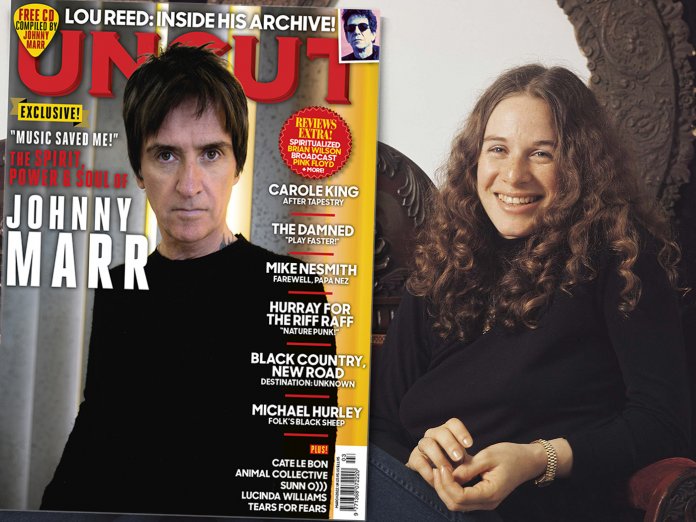It’s a grey evening on May 26, 1973, and Carole King is provoking the world’s least likely riot. The unaffected Brooklynite is returning to home turf for her first and only New York appearance since Tapestry made her a superstar. Despite leaden skies, 100,000 people have turned out to see King o...
It’s a grey evening on May 26, 1973, and Carole King is provoking the world’s least likely riot. The unaffected Brooklynite is returning to home turf for her first and only New York appearance since Tapestry made her a superstar. Despite leaden skies, 100,000 people have turned out to see King on the Great Lawn behind the Delacorte Theater. Their number includes Joni Mitchell, Faye Dunaway and Jack Nicholson – as well as King’s mother, fretting that the piano is out of tune. The concert is being overseen by Chip Monck, the man behind the Woodstock festival. Having installed 250 scaffolding frames for the PA, Monck describes the event as “a little Woodstock”.
King laughs as she sits down at the piano, wearing jeans and a plaid tunic. “It was supposed to rain,” she says, launching into a 75-minute set which begins with solo performances of “Beautiful”, “It’s Too Late”, “Back To Canaan” and “Way Over Yonder”. Later, a five-piece band and six-piece horn section join her to play several songs from her forthcoming album, Fantasy. A weird’n’funky concept album that addresses drugs, destitution and racial disharmony, Fantasy is Super Fly filtered through the lens of Laurel Canyon. More than once, overexcited crowds push down the rickety fences surrounding the stage. Facing the unforeseen spectacle of mass disorder at a Carole King concert, the organisers interrupt the show, instructing fans to climb down from the scaffolding. Eventually, King ends with “You’ve Got A Friend”, dedicated to James Taylor.
“Central Park was amazing,” says Harvey Mason, King’s drummer that night. “Incredible! So many people who loved her so. It was a lovefest. It was wonderful to see her interacting with the audience, to support her and play all that great music. We couldn’t wait to get out there.” Speaking to the New York Times, one young woman in the crowd succinctly articulated King’s appeal. “She takes people’s thoughts, puts them into words, then writes beautiful music for it.”
When King – who turns 80 on February 9 – played Central Park, by far the biggest concert of her life to date, over two years had passed since the homely Tapestry conquered the world. In a time of what King called “generational and cultural turbulence”, its 12 songs fed a hunger for plain-spoken intimacy. In America, the album spent 313 unbroken weeks in the charts. It has since sold 25 million copies. “It’s very rare that every song on a record touches your heart, your ears and your soul,” says Waddy Wachtel, who played guitar with King. “It’s quite an achievement. How do you follow that?”



